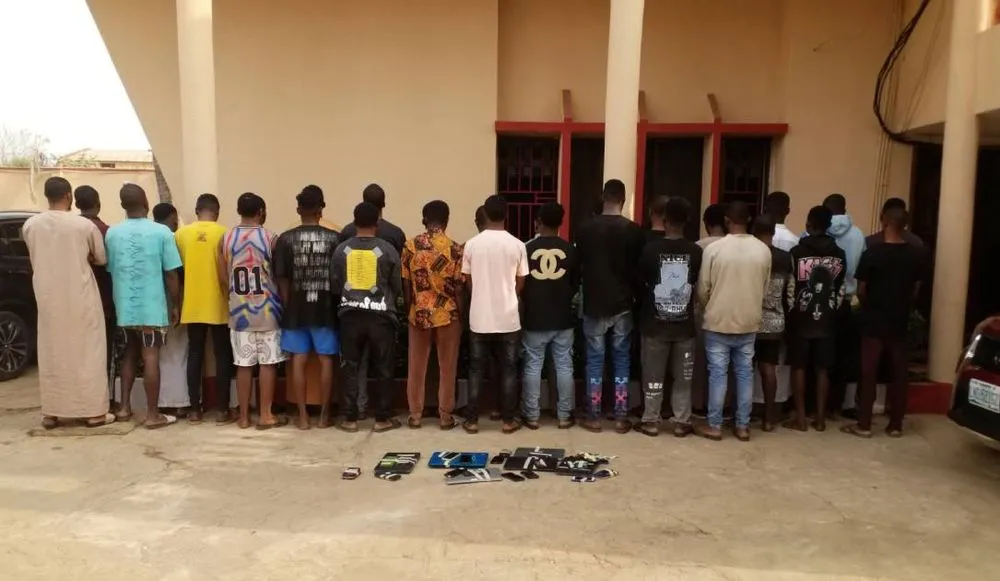Nigerian police arrest 29 in online fraud crackdown
Nigeria’s Economic and Financial Crimes Commission (EFCC), the agency that enforces local laws against online fraud, announced Thursday that it arrested 29 people allegedly involved in “internet and other related fraud activities.”
The arrests were made around the city of Offa in Kwara State by EFCC’s Ilorin Zonal Command, who also seized mobile phones, laptops, and cars, according to a news release on the EFCC’s website.
The agency said the arrests were the result of “credible intelligence received by the Command on the activities of the suspects.” Some of those arrested “have confessed to the crime,” the EFCC wrote, and will be charged at the end of the investigation.
The EFCC has made a number of similar crackdowns in recent years, sometimes in collaboration with law enforcement agencies from other countries—including arresting 167 in 2019 as part of an international action known as Operation reWired and 11 people in January of this year in relation to an Interpol investigation of the Silver Terrier cybercrime gang.
Nigeria’s history with cybercrime goes goes back to the 1990s, but local cybercriminals have since evolved from targeting individual victims to being a more sophisticated underground economy that seeks larger paydays by compromising business emails systems to redirect funds or commit identity fraud to take out false loans and access to government benefits systems.
Widespread poverty and increased economic insecurity during the pandemic have also left cybercrime as one of few options available to Nigerians who may have access to the internet, but are not able to find legitimate work that pays as well.
Andrea Peterson
(they/them) is a longtime cybersecurity journalist who cut their teeth covering technology policy at ThinkProgress (RIP) and The Washington Post before doing deep-dive public records investigations at the Project on Government Oversight and American Oversight.



